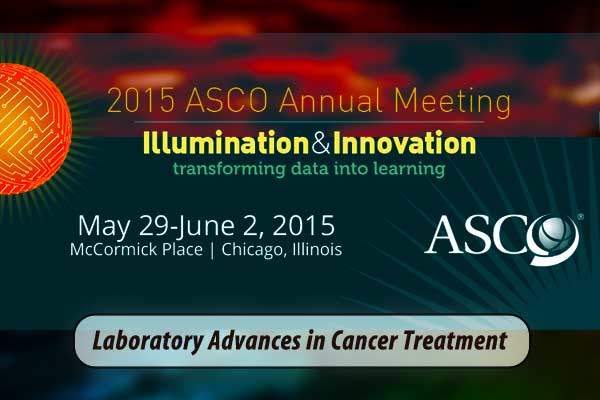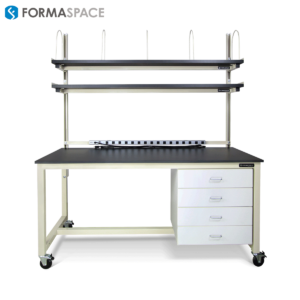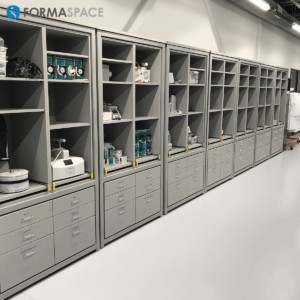The American Society of Clinical Oncology (ASCO) held its annual meeting this week at McCormick Place in Chicago. This annual event brings together over 30,000 specialists in the field of cancer research.
Jedd D. Wolchok, MD, PhD & Latest Advances in Cancer Treatment
To get an overview of the theory behind his latest advances in cancer treatment, we turn to Jedd D. Wolchok, MD, PhD, who is Chief of the Melanoma and Immunotherapeutics Service, Associate Attending Physician at Memorial Sloan-Kettering Cancer Center (MSKCC). As Chief of Melanoma and Immunotherapy at Memorial Sloan Kettering, Dr. Wolchok is the lead investigator looking at ways to unlock the immune system to fight cancer. In a TEDx Talk (click on image below to play video), Dr. Wolchok outlines some of the curious aspects of how cancer can exist in the body despite a very human active immune system which should be able to eliminate it easily.
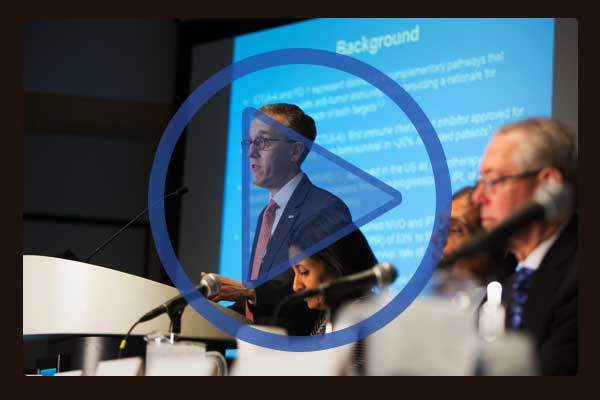
The analogy that Dr. Wolchok makes is intriguing: he theorizes that cancer actually shares many of the same characteristics as that of a developing embryo in the womb. Just like a developing embryo must establish its own blood supply and nourishment from the mother — so do cancerous tumors. As the embryo develops, it must also protect itself from the attack of the mother’s immune system; cancer also has this capability of hiding from the body’s immune system. It’s this characteristic of cancer — its ability to hide from the body’s infection-fighting T cells — that has oncology laboratory scientists at the ASCO conference so excited.
Two recently developed drugs, ipilimumab (sold as Yervoy) and nivolumab, seek to ‘unhide’ the cancer cells from the body’s immune system. These new immunotherapy treatments came about from research at Dartmouth Medical School and were brought to market by the biotech firm Medarex. In 2009 Bristol Myers Squibb acquired the company. Enough time has passed that we are beginning to see the results from a series of studies on the effectiveness of these new therapies for diseases like skin cancer, lung cancer and liver cancer.
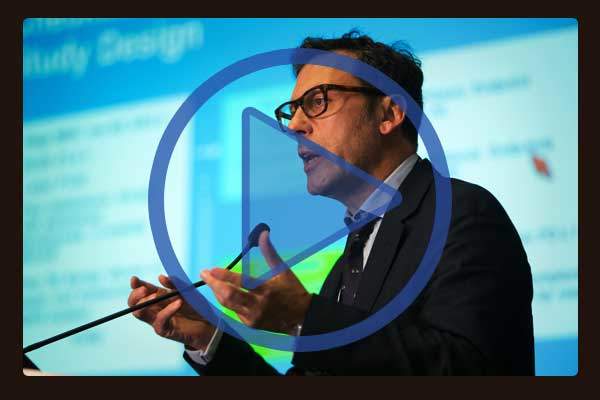
At this week’s ASCO conference, Dr. Wolchock announced results from first Phase III trial on patients with previously untreated advanced melanoma (skin cancer). The results were dramatic: patients benefited from nivolumab alone, or a combination treatment of nivolumab and ipilimumab. Next up was Professor Luis Paz-Ares, MD, PhD of the Hospital Universitario 12 de Octubre in Madrid. He presented the findings from a randomized phase III study that indicates PD-1 immunotherapy is an effective treatment option for patients with non-squamous, non-small cell lung cancer (NSCLC). The treatment allowed patients to live an average three months longer than those treated with docetaxel chemotherapy. In contrast, the condition of patients who received platinum-based chemotherapy worsened.
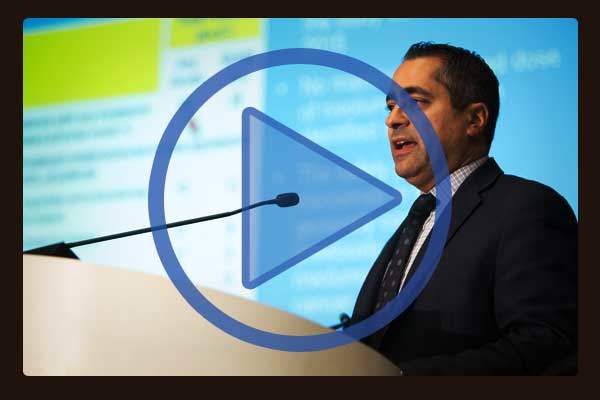
What about liver cancer? Can nivolumab help treat this disease as well? Yes, according to findings presented by Anthony B. El-Khoueiry, MD, University of Southern California Norris, Comprehensive Cancer Center, Los Angeles. At ASCO, Dr. El-Khoueiry presented findings from a phase I/II study that suggest that nivolumab is safe and effective in advanced liver cancer. 20% of the patients responded to the anti-PD-1 antibody, resulting in tumor reductions of over 30% — and these improvements did not reverse after 12 months for half the patients who responded to the treatment.
What’s the Next Step? Precision Medicine
As you may have noticed from our brief summary of the results of recent cancer drug trials, some patients benefit from these new therapies while others do not. Recognizing that no two individuals are the same is the new frontier for oncology. This past Monday, the National Cancer institute announced it would begin a nationwide research study that takes this into account. Rather than performing human studies based on where the cancer is located in the body, such as in the lung or the liver or the skin, the new approach will attempt to sort the cancers by their specific genetic mutations.
In other words, the result will be a study where cancer patients are grouped according to the genetic mutations found in their cancer cells. This will enable laboratory researchers to focus their efforts on developing drugs that are effective in treating a ‘like class’ of molecular abnormalities. We will have more to say about this personalized medicine approach to treating cancer and other diseases in an upcoming article.
At Formaspace, We take Laboratory Discovery Very Seriously
Establishing a strong safety culture at your laboratory begins with a clean, well-organized and ergonomic work environment. We can help. We invite

you to join the roster of satisfied Formaspace technical, manufacturing and laboratory furniture clients — including Apple Computer, Boeing, Dell, Eli Lilly, Exxon Mobile, Ford, General Electric, Intel, Lockheed Martin, Medtronic, NASA, Novartis, Stanford University, Toyota and more.
Give us a call today at 800.251.1505 to find out more about the Formaspace line of built-to-order computer workstations, industrial workbenches, laboratory furniture, lab benches and dry lab/wet labs — as well as our design / furniture consulting services. Like all Formaspace furniture, it’s backed by our famous 12 year, three shift guarantee.


